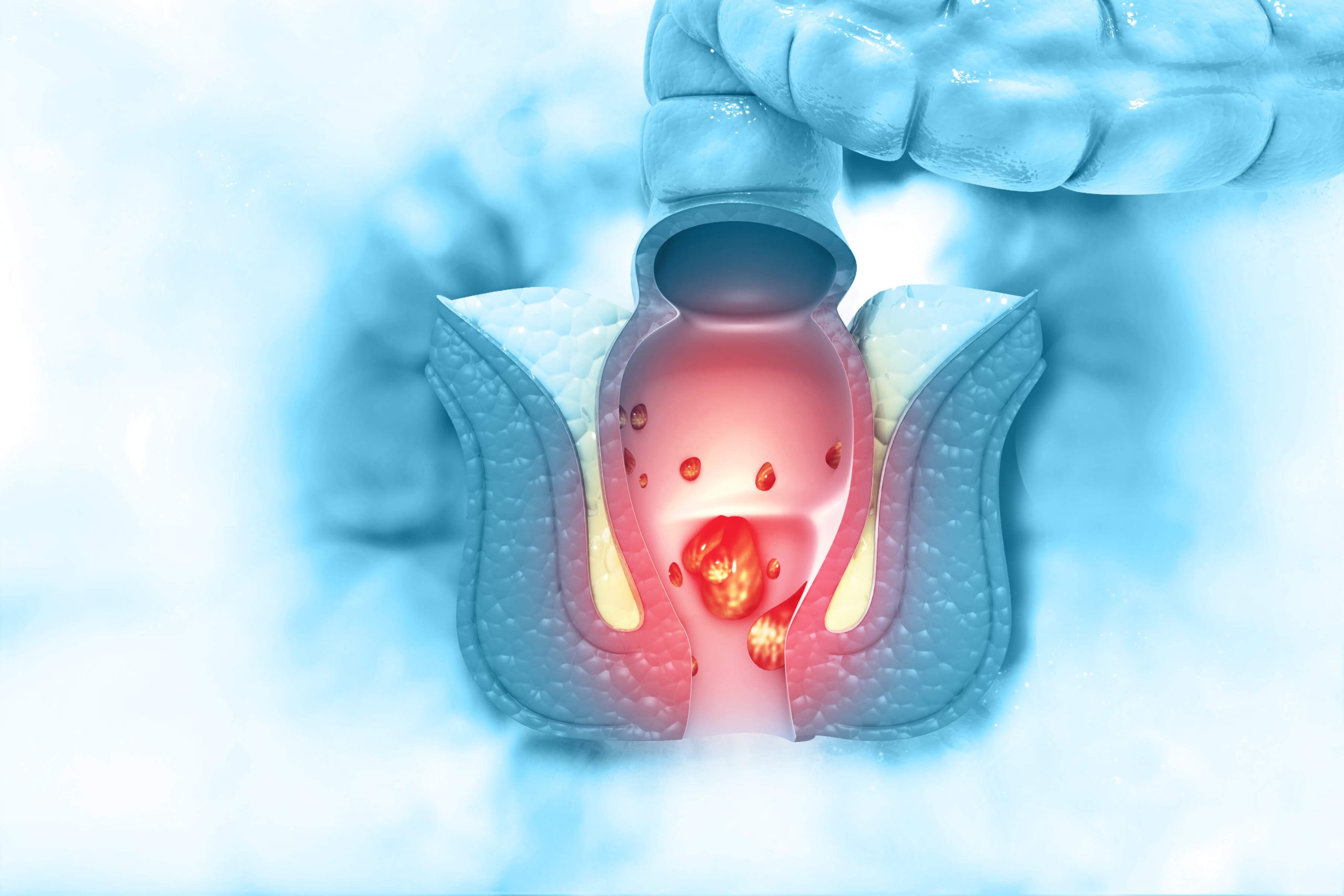Colorectal Health
What Are Haemorrhoids?

Piles (Haemorrhoids)
Haemorrhoids, commonly known as Piles, are swollen veins in your anus and lower rectum, and they look similar to varicose veins. Even though piles can be painful and alarming, there are effective options available to treat them.
Causes & Symptoms Of Piles
Symptoms Of Piles
In most cases, symptoms of piles are not serious and go away on their own after a few days. You may have piles if you’re experiencing the following:
- hard lump or swelling around the anus
- a feeling of fullness in your anus even after a bowel movement
- bright red blood on your toilet tissue or in the toilet bowl
- feelings of soreness or itchiness around the anus area
- painful when passing stools
What Causes Piles?
Piles generally develop when there’s increased pressure in your lower rectum and this may be due to the following:
- chronic constipation
- constantly straining when passing stools
- chronic diarrhoea
- pregnancy
The risk of developing piles increases as you age due to the weakening and stretching of the tissues that support the veins in the rectum.
During pregnancy, the weight of the baby may put pressure on the anal region, causing piles.
How Are Haemorrhoids Diagnosed?
Larger haemorrhoids are usually diagnosed by a physical examination by your colorectal specialist. However, smaller haemorrhoids that do not prolapse cannot be felt, and your specialist may use a proctoscope to see the haemorrhoids.
Why It’s Important To Consult A Specialist When You Notice Symptoms
Symptoms of piles may be similar to other colorectal conditions, such as colorectal cancer. We strongly advise you to seek medical advice early to rule out other conditions. Additionally, serious piles that go untreated may lead to more serious complications such as infection and anal fistulas.
Treatment Options For Piles Based On Grade
Grade 1
Grade 1 piles are small swellings on the inside lining of the anal canal that cannot be seen or felt from the outside. They do not prolapse or protrude out of the anus. These are common and can be diagnosed using a proctoscope during a proctoscopy.
Grade 1 piles are usually treated with medications or topical suppositories.
Suppositories are a type of topical medicine meant to be inserted into the rectum, where they dissolve and are absorbed through the lining of the rectum. Your doctor may prescribe constipation medications to prevent your piles from recurring.
Due to the small size of Grade 1 piles, no surgical intervention is necessary.
Grade 2
Grade 2 haemorrhoids are internal haemorrhoids that prolapse but then go back inside the anal canal spontaneously without interference.
For Grade 2 haemorrhoids, doctors will often try conservative treatment therapies, such as painless in-office treatment procedures like rubber band ligation, injection sclerotherapy, or infrared coagulation. These treatments are performed on internal prolapsed haemorrhoids only, not external haemorrhoids. While these treatments for Grade 2 haemorrhoids usually last from six months to a year before they need to be repeated, results have shown that they can be effective on many patients and are done without anaesthesia and cause minimal discomfort.
Grades 3 and 4
Grade 3 – Haemorrhoid protrudes through the anus during straining or evacuation but needs to be manually returned to position.
Grade 4 – Hemorrhoid remains prolapsed outside of the anus and cannot be manually returned to position.
For treatment of Grade 3 and Grade 4 haemorrhoids, doctors will recommend surgical treatments. The most common surgical treatments are surgical haemorrhoid excision and surgical haemorrhoid stapling procedure.
When Should You See A Piles Specialist?
Most of the time, symptoms of small haemorrhoids tend to resolve after a few days with home care. However, if your symptoms persist for more than a week, you may have chronic haemorrhoids and should consult a specialist.
Go to the nearest A&E if you have large amounts of bleeding in your rectum, feel lightheaded, dizzy, or faint. One should also see a doctor if severe pain or swelling around the anus.
Read this next ...
WHO WE ARE
关于SOG
新加坡O&G有限公司(SOG)成立于2011年,我们的愿景是创立一个专业的医疗和外科团队,从而满足现代女性及其孩子和家人的医疗保健需求。我们的诊所遍布新加坡各地,女性和儿童能够方便地享受我们高质量和值得信赖的个性化医疗保健服务。
- 产科
- 妇科
- 妇科肿瘤
- 乳房和普通外科
- 皮肤科
- 儿科
Recommended Specialist
